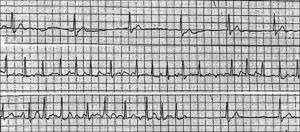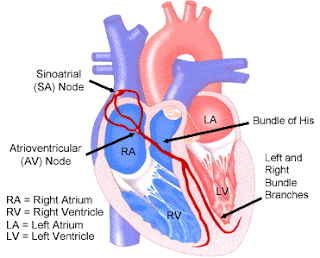
The cells could potentially grow into the same type of heart tissue as the sinus node. Stem cells are immature cells capable of developing into any specific type of mature cell. SSS is not a specific disease, but rather a group of signs or symptoms that indicate the sinus node, the hearts natural pacemaker, is not functioning properly.

The cells would then grow into the heart and become a new pacemaker.Ī second approach would be to use stem cells. Pacemaker evaluation should include interrogation of arrhythmia logs (looking for atrial and ventricular. This could be done by taking cells containing pace-making genes and implanting them in the heart. Sick sinus syndrome (SSS), more well-known as sinus node dysfunction (SND), is a term that includes a variety of cardiac arrhythmias that have as their basis an abnormality of initiation or propagation of the sinus node impulse. With modern technology, there’s a growing interest in creating a biological pacemaker. venous thrombosis (blood clot within the body’s veins).The risk of developing it increases with age. Sick sinus syndrome is relatively uncommon. Sick sinus syndrome causes slow heartbeats, pauses (long periods between heartbeats) or irregular heartbeats (arrhythmias). ypes Sinoatrial block: Electrical signals pass too slowly through the sinus node, resulting in an abnormally slow heart rate. The result is that the heart rate is no longer controlled at a regular rate and rhythm, and abnormal heart rhythms (arrhythmias) occur. infection from the implant (bacteria brought in during surgery causes infection) It affects the heart's natural pacemaker (sinus node), which controls the heartbeat. Sick sinus syndrome (SSS) is an abnormality or malfunction of the sinus node.myocardial perforation (accidental hole made in the heart during surgery).Rare complications of a pacemaker implant include:

Pacemakers are generally tolerated well, and most people experience few complications. It does this by sending electrical pulses to the heart.Īlmost one-half of pacemaker implantations are performed because of problems related to sick sinus syndrome. They may also prescribe additional medications that may have a direct effect on heart rhythm.Įventually, however, most people with SSS will need an artificial pacemaker implant when the sinus node is no longer able to adequately perform.Ī pacemaker is a very small machine that’s surgically and subcutaneously implanted in the chest or abdomen to regulate your heartbeat. Sick sinus syndrome (also known as sinus node dysfunction) is a group of related heart conditions that can affect how the heart beats. Your doctors may adjust or change your medication if that’s the problem. Treatment for mild or early cases of SSS involves relieving symptoms.


 0 kommentar(er)
0 kommentar(er)
